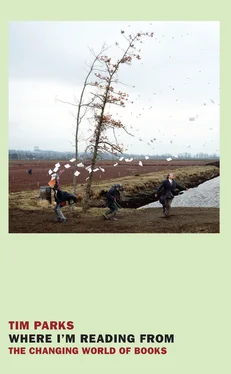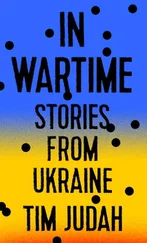It’s rather as if the spontaneous Romanticism of the nineteenth-century poets had become a job description; we know what a romantic is (the politics, the behavior patterns), we know that is the way to literary greatness, so let’s do it. Coetzee’s novel Youth captures with fine wryness the trials of a methodical young man seeking to make a career out of becoming the kind of writer he is not.
Let’s consider a few of the changes that led us to this state of affairs.
In the twentieth century people stopped just reading novels and poems and started studying them. It was a revolution. Suddenly everybody studied literature. At school it was obligatory. They did literature exams. They understood that when there are metaphors and patterns of symbolism and character development, etc., then you have “literature.” They supposed that if you could analyze it, you could very probably do it yourself. Since enormous prestige was afforded to writers, and since it was now accepted that nobody needed to be tied to dull careers by such accidents of birth as class, color, sex, or even IQ, large numbers of people (myself included!) began to write. These people felt they knew what literature was and how to make it.
In the second half of the century, the cost of publishing fell considerably, the number of fiction and poetry titles per annum shot up (about one hundred thousand English-language fiction titles are now published worldwide each year), profits were squeezed, discounting was savage. A situation was soon reached where a precious few authors sold vast numbers of books while vast numbers of writers sold precious few books. Such however was the now towering and indeed international celebrity of the former that the latter threw themselves even more eagerly into the fray, partly because they needed their shrinking advances more often, partly in the hope of achieving such celebrity themselves.
It became clear that the task of writers was not just to deliver books, but to promote themselves in every possible way. He, or let’s say she, launches a website, a Facebook page (I’m no exception), perhaps hires her own publicist. She attends literary festivals all over the world, for no payment. She sits on literary-prize juries for very little money, writes articles in return for a one-line mention of her recent publication, completes dozens of Internet interviews, offers endorsements for the books of fellow writers in the hope that the compliment will be returned. It would not be hard to add to this list.
In the first half of the twentieth century the decline of the gentleman publisher coincided with a rapid growth in the number of writers seeking to storm the citadel. Along with the increasing complexity of book contracts—hardbacks and paperbacks, bookclubs, bonuses, options, sliding scales of royalties, film rights, foreign rights, territorial divisions, remainders, and a host of other niceties—these conditions created and consolidated the figure of the literary agent.
The emergence of the agent signaled an awareness of a clash between the idea of writing as a romantic, anti-establishment vocation and the need for the professional writer to mesh with a well-established industrial and promotional machine. Hopefully the agent would reconcile the two. Soon, however, agents found themselves so overwhelmed by pressure from would-be new arrivals and contract complications that they could no longer be seen either as a gateway into the world of publishing, or as middle men who could spare writers from getting their hands dirty. It was at this point, in the 1980s, that the creative writing course took off and the figure of the career writer began to assert itself.
One of the myths about creative writing programs is that students enter them to learn how to write. Such learning, when and if it takes place, is a felicitous by-product that may or may not have to do with the teaching; the process of settling down to write for a year would very probably yield results even without teachers. No, the students enter the program to show themselves to teachers who as writers are well placed (they imagine!) to help them present themselves to the publishers. Most creative writing programs now offer classes on approaching agents and publishers and promoting one’s work. In short, preparing for the job.
At the same time the perceived need for an expensive yearlong creative writing course on the part of thousands of would-be writers affords paid employment to those older writers who have trouble making ends meet but are nevertheless determined to keep at it. One of the problems of seeing creative writing as a career is that careers are things you go on with till retirement. The fact that creativity may not be co-extensive with one’s whole working life is not admitted. A disproportionate number of poets teach in these programs.
Creative writing programs are frequently blamed for a growing standardization and flattening in contemporary narrative. This is unfair. It is the anxiety of the writers about being excluded from their chosen career, together with a shared belief that we know what literature is and can learn how to produce it that encourages people to write similar books. Nobody is actually expecting anything very new. Just new versions of the old. Again and again when reading for review, or doing jury service perhaps for a prize, I come across carefully written novels that “do literature” as it is known. Literary fiction has become a genre like any other, with a certain trajectory, a predictable pay-off, and a fairly limited and well-charted body of liberal Western wisdom to purvey. Much rarer is the sort of book (one thinks of Gerbrand Bakker’s The Twin , or Peter Stamm’s On a Day Like This , or going back a way, Letty Fox: Her Luck , by the marvelous Australian writer Christina Stead) where the writer appears, amazingly, to be working directly from experience and imagination, drawing on knowledge of past literature only insofar as it offers tools for having life happen on the page.
So then, a would-be anticonventional public enjoys the notion of the rebel, or at least admirably independent, writer, but more and more that same writer, to achieve success, has to tune in to the logic of an industrial machine, which in turn encourages the cultivation of an anticonventional image. This is an incitement to hypocrisy. Meantime the world opens up; books travel further and translate faster than they ever did in the past. A natural selection process favors those writers whose style and content cross borders easily. Success and celebrity breed imitators. Lots of them. Nobody can read everything. Nobody can read the hundredth part of everything. Nevertheless international prizes purport to tell us which is the best novel of the year, who the greatest writer.
The ultimate achievement of the career writer, after a lifetime of literary festivals, shortlists and prizes, readings, seminars, honorary degrees, lectures, and, of course, writing, is, or would be, to place oneself inside “the canon.” But in the publishing culture we have today, any idea that a process of slow sifting might produce a credible canon such as those we inherited from the distant past is nonsense. Whatever in the future masquerades as a canon for our own time will largely be the result of good marketing, self-promotion, and pure chance.
Is all this bad news? Only if one is attached to dreams of greatness. In a droll lecture entitled “Ten Thousand Poets” delivered at the annual conference of the Association of Literary Scholars and Critics at Boston University last October, the excellent poet Mark Halliday reflected:
I think all of us who keep striving and striving to publish another and another book of poems are still in love with the ideas of GREATNESS and IMPORTANCE.
As Halliday concluded, such ideas were simply not compatible with the era of the career writer.
Читать дальше












